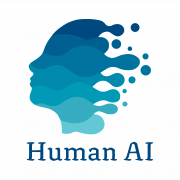Human AI in Peru
AI and Education to Unlock Human Potential
The Human AI Tech team traveled to Peru to take part in the International Congress of Educators (CIE 2025), a key event in Latin America that brings together experts in educational innovation. Our CEO, María Beunza, and our Innovation Manager, Íñigo Benito, represented Human AI in various activities, including keynote sessions, workshops, and visits to schools that are transforming education through innovative models.
During our time in Peru, we had the opportunity to visit several educational institutions and share our vision of how artificial intelligence can personalize learning and enhance the socio-emotional development of students. We are especially grateful to CALA Educación for their support and coordination, and in particular to Mery Carranza and Mónica Garay for accompanying us on our visits to different schools across the country.
Altair School: Educational Excellence and Personalized Learning
Our first stop was Altair School, an institution known for its educational approach focused on student well-being and holistic development. As part of the Inspired Education Group, Altair belongs to an international network of schools that prioritize academic excellence and the formation of global citizens.
Some of the key highlights of its educational model include:
- Personalized learning, adapting methodologies to meet the individual needs of each student.
- Socio-emotional skills development, fostering leadership, resilience, and confidence.
- IB Continuum, being one of only six schools in Peru fully accredited in the International Baccalaureate programs (PYP, MYP, and Diploma).
- Well-being and global community, promoting an environment that nurtures academic, cultural, and athletic growth.
We thank Paloma Krüger Dextre and the Altair team for welcoming us and sharing their educational model with us.
Nuestra Señora del Consuelo: Tutoring and Holistic Education

Another highlight of our visit was to Nuestra Señora del Consuelo School, an Augustinian institution where academic education is complemented by strong personal and psycho-pedagogical support.
This school stands out for:
- A personalized tutoring model, combining group and individual sessions to foster each student’s holistic development.
- An approach rooted in values such as unity, charity, and truth, encouraging reflection and personal growth.
- A strong psycho-pedagogical team, composed of tutors, psychologists, and diversity coordinators who work together to provide structured support.
- Ongoing diagnosis and follow-up, through an evaluation system designed to address the specific needs of each grade and support the development of key skills.
We thank Odaly Sánchez, General Director, and Yolanda Herrera, Director of Personal Development, for sharing their experience with us.
San Agustín School: Academic Excellence and Values-Based Education
During our visit to San Agustín School, we were warmly welcomed by Mónica Fuentes, School Director; María Elena Polasek, Academic Director; and Pamela Castañeda, Director of Personal Development.
San Agustín is an institution with a comprehensive educational vision that integrates academic excellence, values-based education, and the development of future-ready skills. Its educational approach prioritizes:
- Learning based on Augustinian principles, encouraging the pursuit of truth and critical thinking in every student.
- Holistic development, addressing not only academic growth but also emotional, social, and spiritual well-being.
- Innovation in teaching, incorporating active methodologies that foster participation and meaningful learning.
Throughout the visit, we shared reflections on how artificial intelligence can be a key tool to support teachers in evaluating and developing socio-emotional competencies—ultimately strengthening their pedagogical impact.
María Alvarado School: Teacher Training and Educational Innovation

At María Alvarado School, our CEO María Beunza delivered a talk to the entire teaching staff as part of their professional development sessions, sharing how AI can enhance students’ holistic development and support the work of educators.
After the session, we met with Ninoshka Naraza Córdova, School Director, and Moisés Huamaní, Psychologist, to explore the need to incorporate innovative tools to improve classroom practices.
Some of the key takeaways included:
- The role of AI in personalized education, helping to identify each student’s strengths and areas for growth.
- Teacher support, providing data-driven tools to improve the teaching process.
- The use of AI to develop socio-emotional competencies such as leadership, resilience, and effective communication.
The school tested our platform through a demo and is currently considering its implementation as part of a teacher-focused development plan.
Santa Rosa de Chosica School: A Commitment to Innovation
At Santa Rosa de Chosica School, our CEO María Beunza met with school leaders, tutors, and psychologists who will be implementing Human AI in their classrooms this year. Harold Morales, the school’s General Director, shared his excitement: “For me, this is a milestone. We’ve been looking for support in developing socio-emotional competencies to strengthen our personalized tutoring program, which is a cornerstone of our school. Now, it’s up to each of us to use this tool to grow and strengthen the project we’re implementing.”
He also addressed the tutors directly, reminding them that “you are going to be pioneers in using this kind of technology for student development.” The tutors, in turn, expressed their gratitude for the trust the school has placed in them by giving them the opportunity to work with tools like Human AI.

AI and Education: A Path Toward Personalized Learning
These visits have reaffirmed the impact that artificial intelligence can have on personalizing education. The ability to measure and analyze socio-emotional competencies in real time allows teachers to adapt their teaching methods and provide more effective support for each student.
At Human AI Tech, we remain committed to an AI that humanizes learning—one that supports and enhances human talent, and helps every student reach their full potential.
We’ll continue sharing more insights from our time in Peru and the experiences we gathered across different schools in the country.




















